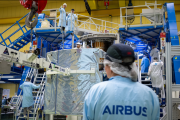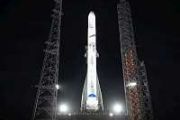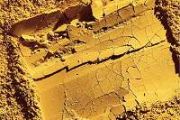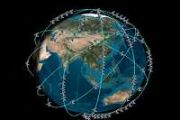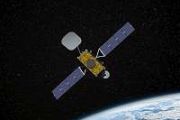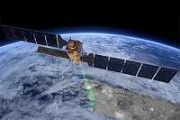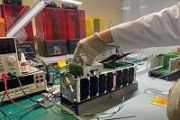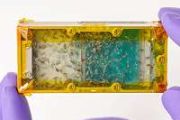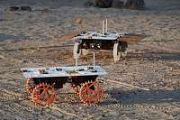
Copernical Team
Another Webb Telescope instrument gets the "go for science"
 The second of NASA's James Webb Space Telescope's four primary scientific instruments, known as the Mid-Infrared instrument (MIRI), has concluded its postlaunch preparations and is now ready for science.
The last MIRI mode to be checked off was its coronagraphic imaging capability, which uses two different styles of masks to intentionally block starlight from hitting its sensors when attem
The second of NASA's James Webb Space Telescope's four primary scientific instruments, known as the Mid-Infrared instrument (MIRI), has concluded its postlaunch preparations and is now ready for science.
The last MIRI mode to be checked off was its coronagraphic imaging capability, which uses two different styles of masks to intentionally block starlight from hitting its sensors when attem AI experts called on to join the hunt for exoplanets
 Artificial Intelligence (AI) experts have been challenged to help a new space mission to investigate Earth's place in the universe.
The Ariel Data Challenge 2022, which launches on 30 June, is inviting AI and machine learning experts from industry and academia to help astronomers understand planets outside our solar system, known as exoplanets.
Dr Ingo Waldmann, Associate Professor i
Artificial Intelligence (AI) experts have been challenged to help a new space mission to investigate Earth's place in the universe.
The Ariel Data Challenge 2022, which launches on 30 June, is inviting AI and machine learning experts from industry and academia to help astronomers understand planets outside our solar system, known as exoplanets.
Dr Ingo Waldmann, Associate Professor i Tonga volcano eruption trigged atmospheric gravity waves that reached the edge of space
 The eruption of the Hunga Tonga-Hunga Ha'apai submarine volcano in January 2022 was one of the most explosive volcanic events of the modern era, a new study has confirmed.
Led by researchers from the University of Bath and published in Nature, the study combines extensive satellite data with ground-level observations to show that the eruption was unique in observed science in both its magn
The eruption of the Hunga Tonga-Hunga Ha'apai submarine volcano in January 2022 was one of the most explosive volcanic events of the modern era, a new study has confirmed.
Led by researchers from the University of Bath and published in Nature, the study combines extensive satellite data with ground-level observations to show that the eruption was unique in observed science in both its magn Eyeing Kukenan - Sols 3519-3524
 Curiosity is continuing to proceed through our pre-planned checklist of activities that we've made for drill campaigns. The team is currently waiting for the downlink that contains data from CheMin's first analysis of the Avanavero drilled sample, and we will use these data to help us decide whether to analyze the sample with SAM as well. While we wait today, we planned a whopping six sols worth
Curiosity is continuing to proceed through our pre-planned checklist of activities that we've made for drill campaigns. The team is currently waiting for the downlink that contains data from CheMin's first analysis of the Avanavero drilled sample, and we will use these data to help us decide whether to analyze the sample with SAM as well. While we wait today, we planned a whopping six sols worth Robotics team practises lunar exploration on Mount Etna
 Robots can enter areas that are dangerous for or inaccessible to humans. They can even explore other planets - or the Moon. This has now been demonstrated on Mount Etna, a volcano in Italy. Various robots completed their tasks independently - they took rock samples, analysed them and forwarded the results to their control centre. Two other scenarios were demonstrated in addition to this mission,
Robots can enter areas that are dangerous for or inaccessible to humans. They can even explore other planets - or the Moon. This has now been demonstrated on Mount Etna, a volcano in Italy. Various robots completed their tasks independently - they took rock samples, analysed them and forwarded the results to their control centre. Two other scenarios were demonstrated in addition to this mission, Rover The Moon
 In the fall of 2023, a U.S. rover will land at the south pole of the moon. Its mission: to explore the water ice that scientists know lurks within the lunar shadows, and which they believe could help sustain humans who may one day explore the moon or use it as a launching pad for more distant space exploration.
NASA recently selected Kevin Lewis, an associate professor in the Krieger Schoo
In the fall of 2023, a U.S. rover will land at the south pole of the moon. Its mission: to explore the water ice that scientists know lurks within the lunar shadows, and which they believe could help sustain humans who may one day explore the moon or use it as a launching pad for more distant space exploration.
NASA recently selected Kevin Lewis, an associate professor in the Krieger Schoo NASA program brings big benefits to Big Ten School
 When Indiana University (IU) introduced the NASA Technology Transfer University (T2U) program at its Kelley School of Business last fall, it became the first university in the Big Ten to do so.
T2U connects universities with NASA technology, giving students the opportunity to work with federal government research and innovations. "Our goal is to inspire young entrepreneurs by bringing real
When Indiana University (IU) introduced the NASA Technology Transfer University (T2U) program at its Kelley School of Business last fall, it became the first university in the Big Ten to do so.
T2U connects universities with NASA technology, giving students the opportunity to work with federal government research and innovations. "Our goal is to inspire young entrepreneurs by bringing real Relativity and Oneweb sign multi-launch agreement for Terran R
 Relativity Space has signed a multi-year, multi-launch Launch Services Agreement (LSA) with OneWeb, the global space-based communications company. Under the agreement, Relativity will launch OneWeb's low Earth orbit (LEO) satellites on Terran R, the first fully reusable and entirely 3D printed rocket, starting in 2025. These launches will support OneWeb's deployment of its Gen 2 satellite networ
Relativity Space has signed a multi-year, multi-launch Launch Services Agreement (LSA) with OneWeb, the global space-based communications company. Under the agreement, Relativity will launch OneWeb's low Earth orbit (LEO) satellites on Terran R, the first fully reusable and entirely 3D printed rocket, starting in 2025. These launches will support OneWeb's deployment of its Gen 2 satellite networ Rocket Lab's Lunar Photon completes 6th orbital raise preps for final Earth-escape burn
 Rocket Lab USA, Inc. (Nasdaq: RKLB) has confirmed its Photon Lunar spacecraft successfully completed a sixth on-orbit burn of the HyperCurie engine, bringing the CAPSTONE satellite closer to the Moon.
Lunar Photon's apogee - the point at which the spacecraft is farthest from Earth during its orbit - is now 43,297 miles (69,680 km).
This sixth burn was originally scheduled to be two b
Rocket Lab USA, Inc. (Nasdaq: RKLB) has confirmed its Photon Lunar spacecraft successfully completed a sixth on-orbit burn of the HyperCurie engine, bringing the CAPSTONE satellite closer to the Moon.
Lunar Photon's apogee - the point at which the spacecraft is farthest from Earth during its orbit - is now 43,297 miles (69,680 km).
This sixth burn was originally scheduled to be two b NASA, SpaceX target new launch date for commercial cargo mission
 NASA and SpaceX now are targeting no earlier than Thursday, July 14, for launch of the CRS-25 commercial resupply services mission to the International Space Station.
The new target launch date supports ongoing Dragon spacecraft inspections as well as repair and replacement of any components that could have degraded by exposure to mono-methyl hydrazine (MMH) vapor found during testing in e
NASA and SpaceX now are targeting no earlier than Thursday, July 14, for launch of the CRS-25 commercial resupply services mission to the International Space Station.
The new target launch date supports ongoing Dragon spacecraft inspections as well as repair and replacement of any components that could have degraded by exposure to mono-methyl hydrazine (MMH) vapor found during testing in e 






